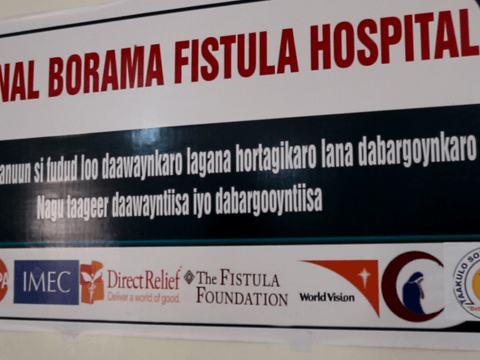The Veiled Resilience

She was a young girl with dreams and ambition. She could have been in secondary school mingling with girls her age. She could have been counting the days until her last secondary school exams like the rest of her classmates. She could have been planning for her future in her mind. But Nimco was not in a school setting. Nimco was lying in a hospital bed, too broken to even utter a word.
On her bed at the Fitula hospital in Borama, Somaliland, Nimco covers her face with a veil because she feels ashamed of the things that have happened in her life; ashamed to face anyone. Married at 17 years of age, Nimco’s dreams and future are only a mirage in her mind. At 19 years, she goes into labour. Her family is excited about the birth of the baby. Her delivery does not go well; she experiences obstructive labour.
Nimco’s baby dies. She is devastated. Due to the obstructive labour she gets obstetric fistula. She is totally depressed and withdrawn. She feels a prisoner to the condition. Owing to the complications during her labour, her uterus has to be removed.
Obstetric fistula is a hole in the birth canal either between the bladder, rectum, urethra or uterus that is caused by obstructed labour. Factors such as harmful traditional practices like early child marriage and Female Genital Mutilation (FGM) are among key contributors to the development of obstetric fistula. It is estimated that 50 percent of girls in rural Somalia are subjected to early child marriages, a practice that is culturally accepted.
With no child, and no husband, Nimco feels she has no hope and no future. She feels she has no life to look forward to. Her veiled face covers her emotions, but her words cut through the deepest of hearts.
Yet still, she finds encouragement from the doctors who give her a hope; who psychologically unveil the mask in her mind to reveal a girl who can smile; a girl who will integrate back to the society a winner and fully restored.
Since 2008, World Vision with support from World Vision Korea has been working closely with community networks, local partners and the Borama fistula hospital to support women and girls suffering fistula in Togdheer region, Somaliland. The intervention addresses the medical aspect but also the underlying societal and economic factors that promote fistula.